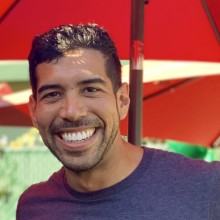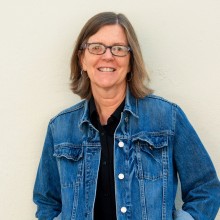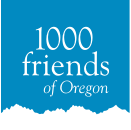By Sam Diaz and Mary Kyle McCurdy | 3-minute read
This week, the Oregon legislature passed a bill that misses the mark for the 140,000 Oregonians desperately needing safe, stable, affordable housing within our communities. We at 1000 Friends of Oregon remain steadfast in our knowledge that any loophole UGB expansions permitted under SB 1537 are simply counterproductive to our real housing needs and goals. These loopholes slow down our progress toward more promising solutions and add risk for people who eventually live in those homes.
When you’re in the middle of a crisis, sometimes you have to think boldly – throw spaghetti at the wall and see what sticks. The idea to sprawl outside urban growth boundaries, including into the wildland-urban interface, where wildfire risk is higher and development patterns worsen environmental impacts, should never have stuck. But we know why it did: It’s a giveaway to homebuilders. Realtors and developers interested in building luxury homes pushed the UGB expansion language in SB 1537 – people who don’t have to live with the dangerous repercussions.
Increased risk to life and property from wildfires: That’s red flag number one.
We spy a false promise in the industry-backed campaign that expanding UGBs can solve our housing crisis. What’s going to be built out there, next to farms and forests or, in some cases, on farmland? Not the affordable housing we need. Our communities overwhelmingly need housing for people with low and moderate incomes – this includes a Medford family of four making less than $65,000 a year (the low-income range) or a Deschutes County family of four making $125,000 a year (the moderate income range). So we’re really talking about housing for everyday folks. But preliminary data suggests that a staggering 93 percent of the housing we currently lack is for people making those same moderate and lower incomes. And yet, under the rules in SB 1537, developers only need to make 30 percent of their housing meet affordability standards. The majority can still be expensive, housing out of reach for the majority who can’t venture beyond their income bracket to buy or rent.
Subsidized luxury and second homes: That’s red flag number two.
And then there’s the siphoning of taxpayer money and limited municipal infrastructure funding from ready-to-build projects inside cities and towns. Or the audacious notion that our quality of life as Oregonians is somehow separate from housing production. Plus the added carbon pollution, stormwater runoff, and heat islands. And, of course, the unacceptable precedent we set in bypassing both Oregon’s land use system, which defends values Oregonians widely support, and its new Oregon Housing Needs Analysis that supports equitable housing planning.
Red flags three, four, five, and six – it’s easy to lose count.
We made great gains for housing in SB 1530, Senator Kayse Jama’s housing bill. It’s kudos all around on that one. And you may have heard us say that the majority of SB 1537 was excellent – that’s still true. The Housing Production Accountability Office and the revolving loan funds are great steps.
However, the negatives of SB 1537 outweigh the good, and we thank Representatives Neron, Walters, and Scharf as well as Senators Prozanski and Manning for seeing this reality and voting against the bill for these reasons. Every day we waste on these giveaways, the further we get from real solutions we’ve been fighting for: funding for affordable housing construction and preservation, bringing life into our cities and towns through processes like office-to-residential conversions, and critical investments in water, sewer, and roads to enable more housing, especially affordable housing, to be built.
In passing SB 1537, we’re especially worried people will think lawmakers have identified real solutions, and that we can move on. 1000 Friends of Oregon and our partners know better. Our efforts to set Oregon up for success aren’t done.
Watch this space.
Signed,


